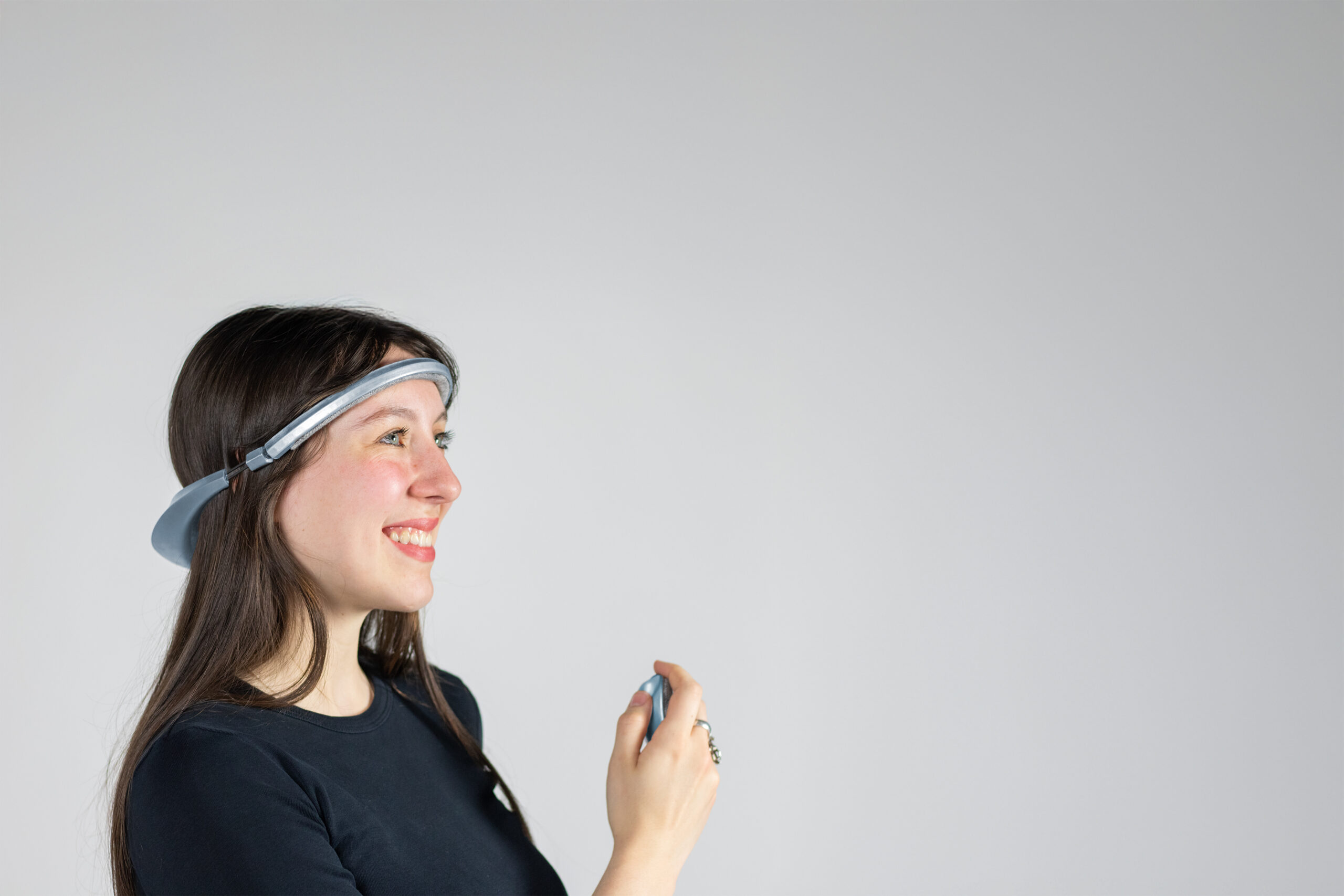Social anxiety impacts more than 15 million Americans, affecting their ability to make friends, participate in the classroom or at work, and pursue new opportunities. Several Pratt students from the School of Design recently proposed ways to manage and even overcome social anxiety, offering a range of approaches and supportive ways to move forward.
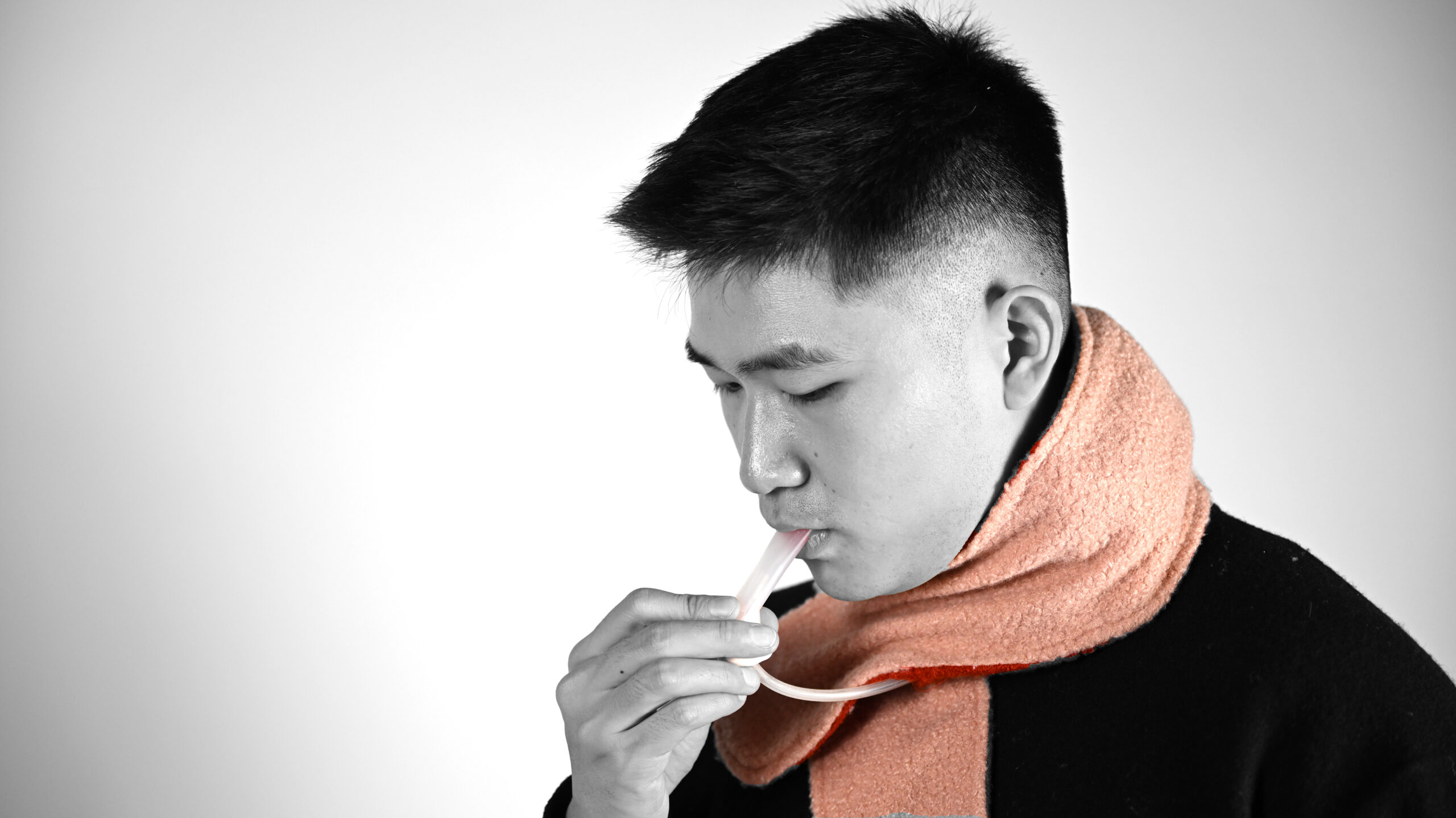
Watson Chenyu Yang, MID ’25, created Embrace, a wrap-around relaxation pad that provides comfort in moments of distress. When someone is feeling anxious, they take the pad from their bag, wrap it around their neck, and fill it with air. The intentional breathing needed to inflate the pad is calming, and its pillow-like quality provides ongoing support and relaxation.
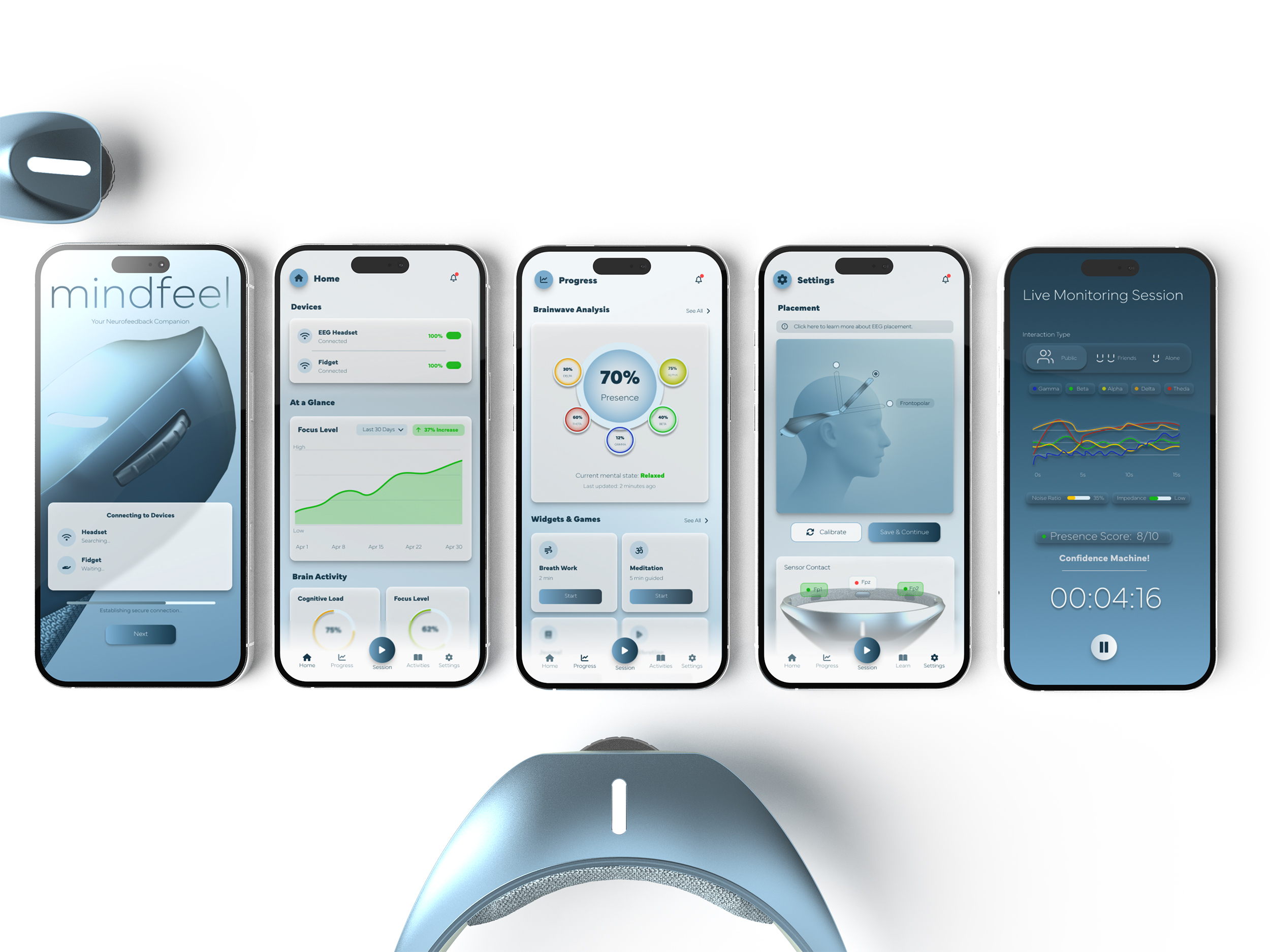
Joshua Weinberg, BID ’25, developed Mindfeel, a wearable device that connects with someone’s smartphone and allows them to both read signals from their brain and soothe anxiety through a hand-held fidget device. With live monitoring features, as well as in-app meditation and breathwork prompts, Mindfeel recognizes the patterns of anxiety and offers a degree of control over it.
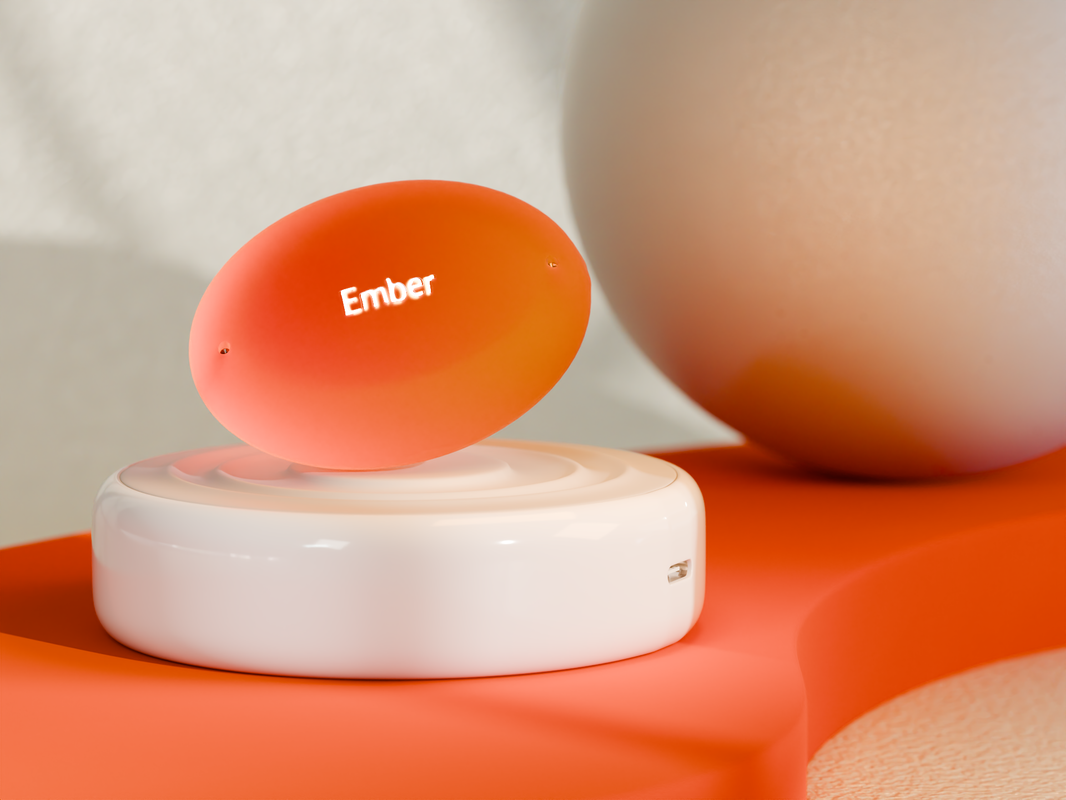
To give people support in uncomfortable situations, Aarya Vaidya, MS Packaging, Identities, and Systems Design ’25, developed Ember, which is designed to help transform socially awkward moments into opportunities for connection. The pocket-sized device uses artificial intelligence to generate prompts that “break the ice” and help a conversation flow. An example question might be: “What’s a random skill you’ve always wanted to learn?”
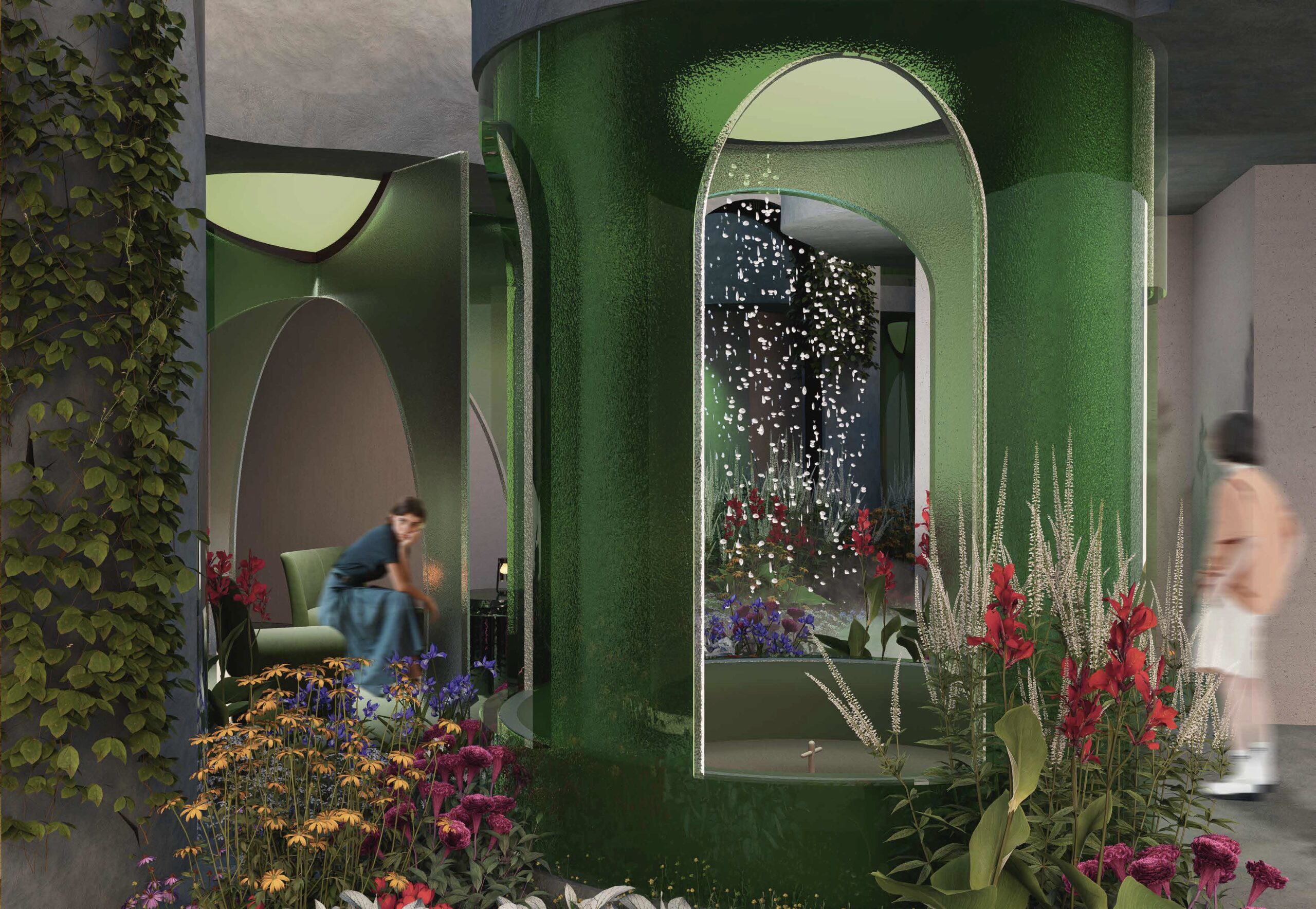
Recognizing the therapeutic power of imagination, Xiaotong (Amy) He, BFA Interior Design ’25, developed The Other Place: An Amusement Park for Temporary Escape and Identity Release, which aims to help people let go of their everyday struggles. The reimagined amusement park provides various rooms for reflection and emotional processing, empowering people to move beyond anxiety into a place of self-acceptance.
“Within this transformed environment, the relationship between self and world is gently reconstituted, offering visitors a renewed sense of orientation, agency, and possibility,” she wrote.
